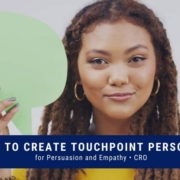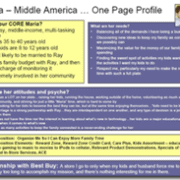Happiness Means Different Things to Your Website Visitors
The Conversion Sciences Lab requires long hours of focused attention. Needless to say, we have to keep ourselves in shape to do good work. I keep my svelte shape in part by performing some physiological experiments on myself at Lifetime Fitness. The things I do would make me laugh if I was watching.
 As part of Lifetime my membership, I am graced with the monthly magazine Experience L!fe. The March issue featured the article “A Plan for Happiness.”
As part of Lifetime my membership, I am graced with the monthly magazine Experience L!fe. The March issue featured the article “A Plan for Happiness.”
Finally! A plan.
The plan for happiness begins with some convincing proof, citing a study by a PhD on some three-thousand people. Based on this research, the good doctor found that, “If you can prevent stress from happening by planning, you’re going to be much better off.” He offered three steps:
- Make a List before you go to bed each night
- Prioritize and tackle the first two or three things immediately
- Break down big tasks into 15-minute chunks.
Now, if you are like me and some three-fourths of the population, you will find this list laughable. This kind of disciplined and controlled regimen works for one kind of person, but not for most of us.
Now imagine that your online business was paid based on the happiness achieved by its visitors. This one recipe would not be a very profitable, because it only appeals to one personality “mode.” Based on Myers-Briggs research, there are at least four major personality modes, or temperaments, and I discuss them in my most recent Search Engine Land column.
How would we write our happiness recipe to appeal to each of the four personality types and why do you care? First of all, you care because the job of your website is to make your visitors happy. That is when they buy from you.
The list provided by our eager PhD is ideal for the Competitive types, who are often found to be on a mission to improve their life. They are goal-oriented and disciplined.
However, our Spontaneous visitors live for impulse and action. Their plan for happiness might be:
- Make a list — if you go to bed. Make your list with an Etch-a-sketch or Lite-Brite to make it fun.
- Prioritize. Then ignore the prioritization and tackle the first two or three things that grab your interest in the morning.
- Break down big tasks into… “Squirrel!”
Humanists, on the other hand make decisions based relationships and how something makes them feel. Their stress relief formula might be:
- Make a list before you go to bed of the people you wish were snuggling with you. Text them goodnight.
- Prioritize the first two or three things on someone else’s list. Tackle these for them.
- Break down big tasks and have a task party with each of your friends.
Finally, our Methodicals are going to be suspicious that three steps is sufficient to solve a problem like happiness. They need information, data and detail.
- Make a list before you go to bed each night.
- Do a gap analysis of this list against the previous night’s list. On weekends, include a trend analysis.
- Prioritize the list, but do not tackle yet.
- QA the prioritized list using the list prioritization guidelines.
- Complete a task requirements document (TRD) for each.
- Identify resources required and procure missing materials.
- Execute.
- Have 15-minute progress reviews to ensure there has been no task scope creep.
Do you identify with any of these? Tell us in the comments. Read more about them in Advanced Landing Page Techniques: Searcher Personas. They are the modes of persuasion that the Eisenberg brothers define in their book Waiting for Your Cat to Bark? which I highly recommend.
How is your site making its case to the four kinds of visitors you have coming to your site?












Personally, I think that happiness is too hard to attain for some people.